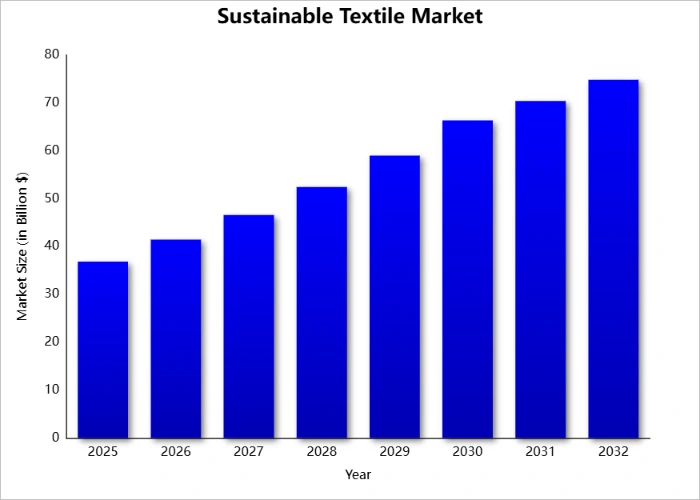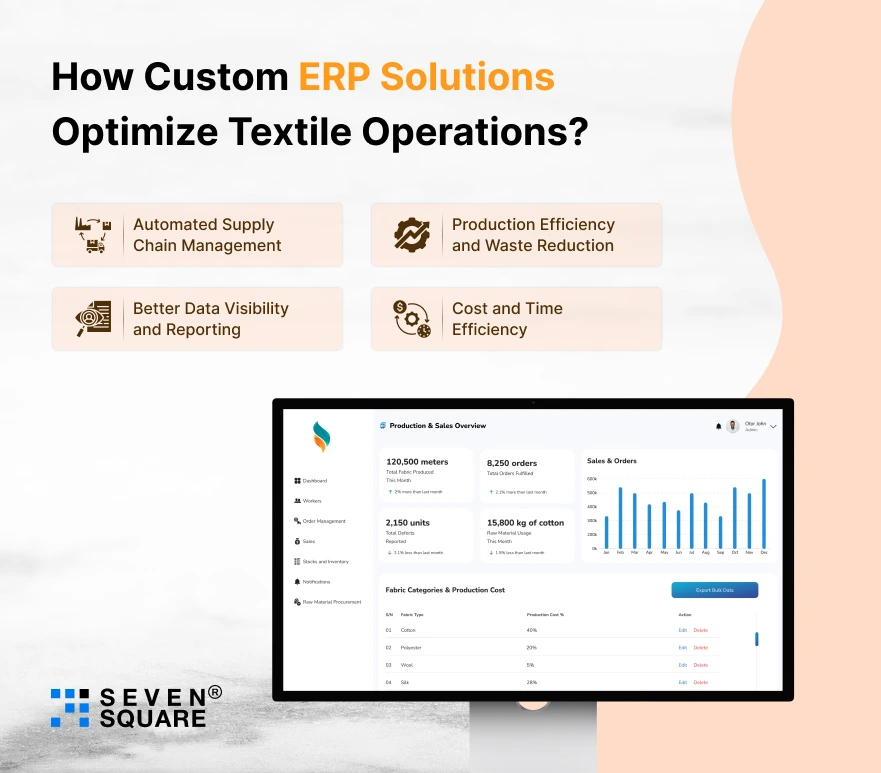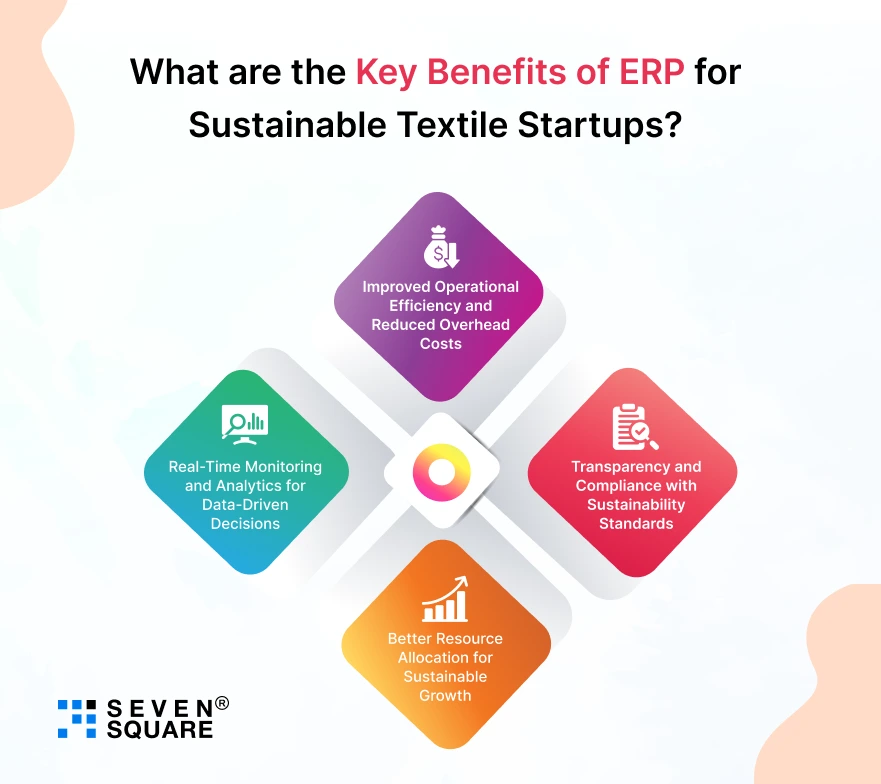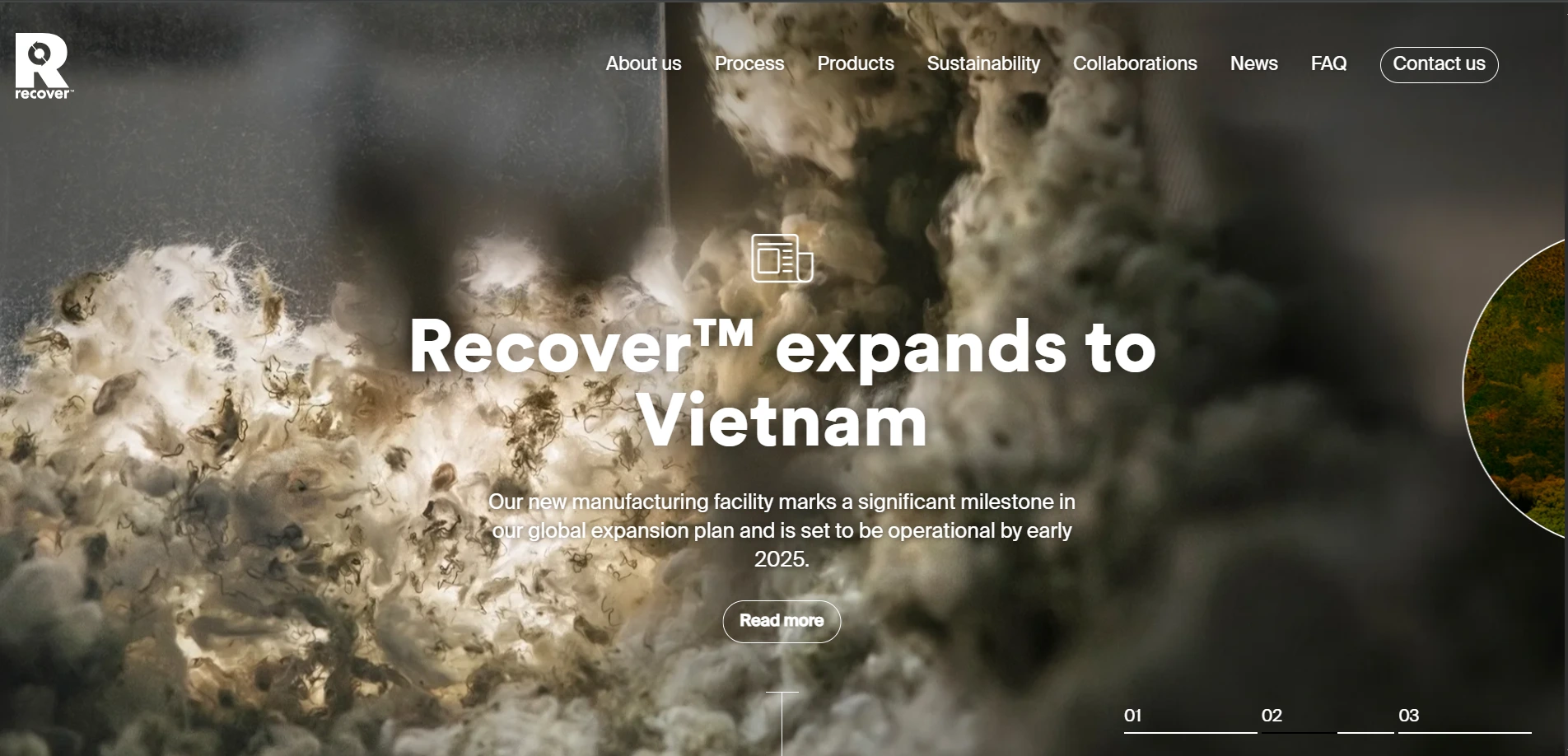Sustainable textile startups in Spain have been becoming popular because of the increasing demand for eco-friendly fabrics.
Consumers are becoming more conscious about environmental impact.
That’s why startups are under pressure to adopt eco-friendly textile production while ensuring cost-efficiency and smooth operations.
Balancing sustainability with operational efficiency is not an easy task. Many startups struggle with challenges like:
- Complex supply chains with multiple vendors and scattered data.
- Inefficient inventory management means overproduction or stock shortages.
- Compliance with sustainability regulations requires detailed reporting and transparency.
To overcome these challenges, startups are going for ERP for textile manufacturing.
Custom ERP solutions can help to automate processes, simplify supply chains, and improve resource management.
By integrating real-time data tracking and optimizing production workflows, ERP allows sustainable textile startups to reduce waste & boost productivity.
The sustainable textile market is expected to reach $74.8 billion by 2032.
Are you wondering how textile industry ERP solutions can help your business?
In this blog, we have tried to explain how sustainable textile startups in Spain can use custom ERP solutions to optimize their operations.

Source: Market Research Future
What are the Challenges Faced by Sustainable Textile Startups in Spain?
Running a sustainable textile startup in Spain comes with its challenges.
Many eco-friendly practices are necessary but they often create operational complexities that can affect growth and profitability.
Here are some of the key challenges these startups face:
1. Supply Chain Complexities:
- Managing the textile supply chain can be challenging.
- From sourcing raw materials to overseeing production and distribution, startups often deal with disjointed processes.
- Without proper coordination, delays, waste, and inconsistencies become common issues.
2. Resource Optimization Issues:
- Balancing sustainability with profitability is difficult.
- Eco-friendly production reduces the carbon footprint but it can increase costs and slow down operations.
- Startups need textile supply chain optimization strategies to use resources efficiently without compromising their green initiatives.
3. Data Fragmentation:
- Many startups still depend upon manual data management & use spreadsheets or outdated systems.
- This leads to scattered information & makes it hard to track inventory, production, and sales accurately.
- Without centralized data, startups struggle to make detailed decisions.
4. Compliance and Regulations:
- Because of environmental concerns, Spain implements strict sustainability regulations for the textile industry.
- Startups must follow these standards by documenting their sourcing, production methods, and waste management.
- Failing to comply means legal issues and reputational damage.
To overcome these challenges, startups are adopting ERP solutions for textile manufacturing.
By automating processes, centralizing data, and ensuring compliance, ERP systems help sustainable textile startups to simplify operations.
How Custom ERP Solutions Optimize Textile Operations?

Sustainable textile startups in Spain are going for custom ERP solutions to simplify operations and boost efficiency. Here’s how ERP systems optimize key processes:
1. Automated Supply Chain Management
- With ERP for textile manufacturing, startups can track inventory in real time and manage orders seamlessly.
- Automated insights help to reduce material waste by preventing overproduction and improving stock accuracy.
2. Production Efficiency and Waste Reduction
- Custom ERP solutions simplify production workflows by automating repetitive tasks and ensuring smooth operations.
- Accurate production planning minimizes fabric waste & ensures startups use only the necessary resources to reduce costs and support sustainability.
3. Better Data Visibility and Reporting
- With centralized data access, textile startups get a clear view of their operations for faster and smarter decision-making.
- Automated reporting ensures startups follow sustainability regulations with detailed insights into resource usage and production metrics.
4. Cost and Time Efficiency
- Textile industry ERP automates routine administrative tasks to free up valuable time for employees to focus on core activities.
- By optimizing resource allocation, startups can reduce labor costs and boost overall productivity.
By integrating custom ERP solutions, sustainable textile startups in Spain can significantly improve their profitability and long-term growth.
What are the Key Benefits of ERP for Sustainable Textile Startups?

There are many advantages of implementing ERP solutions for sustainable textile startups in Spain.
By automating and simplifying operations, these startups can improve efficiency, reduce costs, and maintain their eco-friendly goals. Here are the key benefits:
1. Improved Operational Efficiency and Reduced Overhead Costs:
- ERP implementation for textile startups automates manual processes, minimizes errors, and increases the speed of operations.
- By optimizing resource usage, startups can cut overhead costs and boost profitability.
2. Transparency and Compliance with Sustainability Standards:
- ERP benefits for the textile industry include real-time tracking of raw materials, production stages, and waste management.
- This ensures startups meet Spain’s sustainability regulations with accurate documentation and reports.
3. Better Resource Allocation for Sustainable Growth:
- With real-time data insights, textile startups can make smarter decisions about material usage and production planning.
- This ensures resources are allocated efficiently to support sustainable growth.
4. Real-Time Monitoring and Analytics for Data-Driven Decisions:
- ERP solutions provide real-time monitoring of operations so that startups can identify inefficiencies and optimize processes.
- Advanced analytics offer valuable insights for strategic decision-making and long-term planning.
By using ERP for sustainable textile production, startups can meet compliance standards and set themselves for long-term success in Spain’s eco-conscious market.
How Recoverfiber Uses ERP for Sustainability?
Recoverfiber is one of the leading names in eco-friendly textile manufacturing in Spain and is known for its commitment to sustainable practices.
It focuses on recycling textile waste and producing high-quality, sustainable fibers.
However, as the demand for their products increased, they faced challenges in supply chain management, resource optimization, and compliance tracking.
ERP Implementation
To overcome these challenges, Recoverfiber adopted a custom ERP solution specifically designed for eco-friendly textile manufacturing. The system included:
- Automated supply chain tracking to monitor raw materials and production in real-time.
- Custom features for waste management and sustainable resource allocation.
- Compliance automation to ensure they met strict sustainability standards in Spain.
Results Achieved
After ERP implementation, Recoverfiber experienced significant improvements:
- Reduced production waste by 25% because of accurate material planning and reduced overproduction.
- Improved supply chain efficiency by 30%, with better inventory control and simplified logistics.
- Better reporting and compliance accuracy make it easier to fulfill environmental regulations with detailed and automated reports.
This highlights how ERP benefits textile industry startups by boosting efficiency, reducing waste, and ensuring compliance.
By adapting custom ERP solutions, Recoverfiber successfully strengthened its position as a sustainable leader in Spain’s textile sector.

How We Help Sustainable Textile Startups in Spain with Custom ERP Solutions?
Our developers build custom ERP solutions designed specifically for sustainable textile startups in Spain.
We help startups to simplify operations, improve efficiency, and meet sustainability standards with ease. Here’s how we can help:
1. Custom ERP Development:
- We create personalized ERP solutions to fulfill the unique needs of textile startups, from raw material management to production tracking.
- Our ERP systems easily integrate with existing platforms for smooth and uninterrupted operations.
2. Supply Chain and Inventory Optimization:
- With real-time tracking and data insights, startups can monitor their entire textile supply chain more effectively.
- Our ERP automates key processes like inventory management and order fulfillment, improving efficiency and reducing human error.
3. Compliance and Reporting Automation:
- Our ERP solutions ensure full compliance with sustainability regulations in Spain by automatically generating detailed reports for audits.
- The system offers transparent documentation & helps startups meet industry standards easily.
4. Ongoing Support and Maintenance:
- We provide continuous improvements and feature upgrades to keep ERP systems up to date with changing business needs.
- Our 24/7 support ensures smooth and uninterrupted operations to minimize downtime and maximize productivity.
By partnering with us, sustainable textile startups in Spain can use enterprise resource planning in textiles for efficiency, reduce waste, and drive sustainable growth.
What is the Future of ERP in Sustainable Textile Manufacturing?
The future of ERP in textiles is growing & with new technologies, it’s changing how sustainable textile startups operate.
Here are some latest trends that are set to change the industry:
1. AI and Machine Learning for Predictive Analytics:
- AI in ERP solutions allows startups to predict demand, optimize inventory, and prevent production delays.
- Machine learning algorithms analyze data patterns to help textile companies make smarter & data-driven decisions.
2. Blockchain for Transparent Supply Chains:
- Blockchain technology is improving supply chain transparency with an unchangeable record of every transaction.
- This ensures ethical sourcing, verifies sustainability claims, and builds trust with eco-conscious consumers.
3. Sustainable Innovations Powered by ERP Technology:
- Modern textile industry ERP trends include tools for reducing waste, optimizing energy consumption, and tracking carbon footprints.
- By integrating sustainability-focused features, ERP systems help startups follow environmental regulations while improving efficiency.
In the future, sustainable textile startups in Spain can use these innovations to simplify operations, improve transparency, and stay ahead in the eco-conscious market.
FAQs
- ERP (Enterprise Resource Planning) is a software system.
- It integrates and manages core business processes like inventory, production, and supply chain.
- For sustainable textile startups, ERP is necessary to handle operations, reduce waste, and ensure compliance with eco-friendly standards.
- ERP systems offer real-time inventory tracking, automated order processing, and better logistics management.
- This improves supply chain efficiency, reduces errors, and ensures timely production and delivery.
- ERP solutions automate report generation & track resource usage to make it easier for textile startups to comply with Spain’s regulations.
- They provide detailed documentation for audits and certifications.
- In the long run, ERP systems help textile startups to scale by reducing operational costs, improving productivity, and with sustainable practices.
- They also improve data accuracy and decision-making.
- Yes, AI-powered ERP solutions offer predictive analytics to forecast demand, optimize production, and identify trends.
- This helps textile startups make smarter & data-driven decisions.